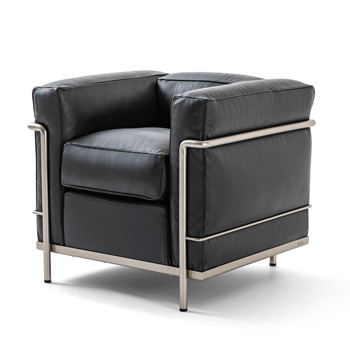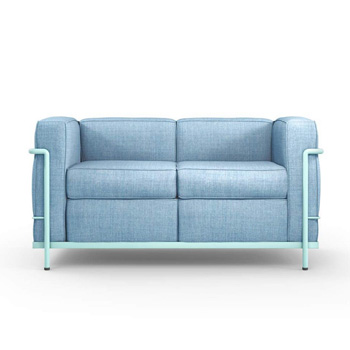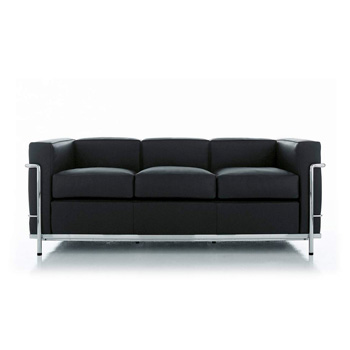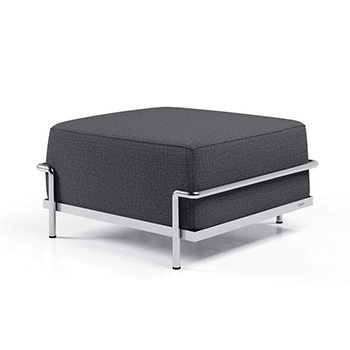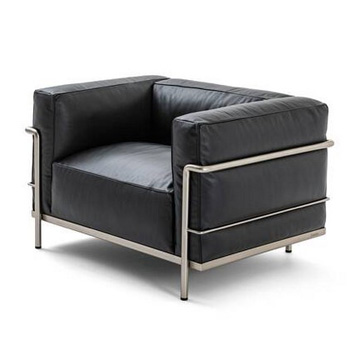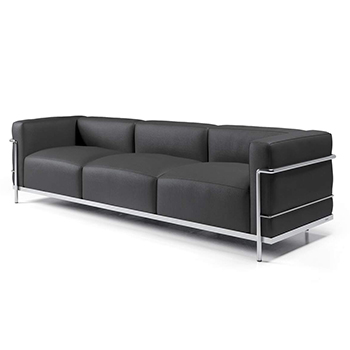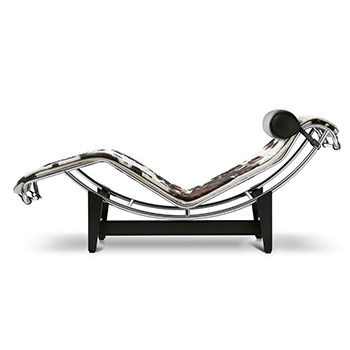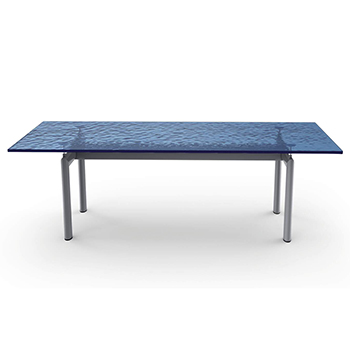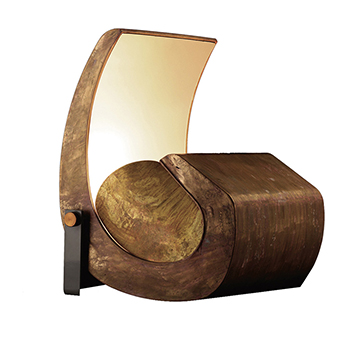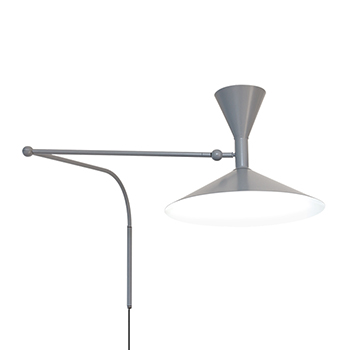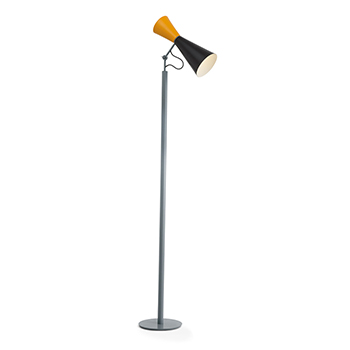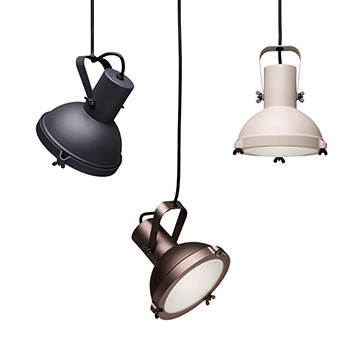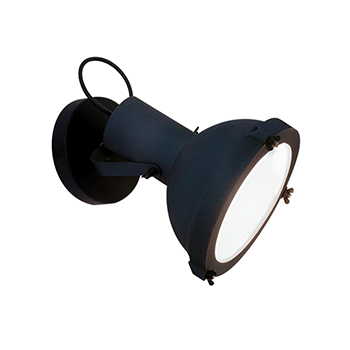
Le Corbusier (1887 - 1965) was born as Charles-Edouard Jeanneret in La Chaux-de-Fonds, Switzerland. He attended the L´Ecole d´Art de La Chaux-de-Fonds and studied under architect René Chapallaz, who influenced Le Corbusier's early residential designs. When he was 20 he went to Paris and worked with Auguste Perret, an architect that pioneered the early use of reinforced concrete; when he was 21 in 1908, he studied architecture with Josef Hoffmann. During World War I, Le Corbusier returned to Switzerland to teach at L´Ecole d´Art de La Chaux-de-Fonds where he developed Domino House - an open floor plan residence that would begin to embody the theories that would inform Le Corbusier's architecture in the ensuing decades. In 1929, Le Corbusier began to work on the Villa Savoie - the architect's landmark residence that embodied the principles associated with the burgeoning International Style. In the 1920s, he became a French citizen and had established an aetelier in Paris with his cousin, Pierre Jeanneret. They hired Charlotte Perriand in the late 1920s and the trio collaborated on a collection of tubular steel furniture that quickly began to define the interior aesthetics of the International Style in furnishings. Nearly 100 years later, these pieces are still in production by Italian manufacturer, Cassina. Along with contemporaries like Walter Gropius and Ludwig Mies van der Rohe, Le Corbusier was considered one of the pioneers of the Modern Movement in the 20th century. Le Corbusier's furniture and lighting designs are included in museum collections around the world. In 2016, 17 of his architectural works around the world were classified as World Heritage sites by UNESCO.
+ View Filters
-
2 Grand Confort Lounge Chair
by Le Corbusier, Perriand, Jeanneret
for Cassina -
2 Grand Confort Sofa - 2 Seat
by Le Corbusier, Perriand, Jeanneret
for Cassina -
2 Grand Confort Sofa - 3 Seat
by Le Corbusier, Perriand, Jeanneret
for Cassina -
2 Ottoman
by Le Corbusier, Perriand, Jeanneret
for Cassina -
3 Grand Confort Lounge Chair
by Le Corbusier, Perriand, Jeanneret
for Cassina -
3 Grand Confort Sofa - 3 Seat
by Le Corbusier, Perriand, Jeanneret
for Cassina -
4 Chaise Longue
by Le Corbusier, Perriand, Jeanneret
for Cassina -
6 Dining Table - Glass Top
by Le Corbusier, Perriand, Jeanneret
for Cassina -
Applique de Marseille Mini Wall Light
by Le Corbusier
for Nemo$450.00
-
Applique De Marseille Wall Light
by Le Corbusier
for Nemo$776.00
-
Borne Beton Grande Floor Lamp
by Le Corbusier
for Nemo$2,790.00 -
Borne Botone Petite Table Lamp
by Le Corbusier
for Nemo$1,440.00 -
Claritas Floor Lamp
by Vico Magistretti
for Nemo$1,380.00 -
Escargot Floor Lamp
by Federico Palazzari
for Nemo$21,240.00 -
La Roche Wall Light
by Le Corbusier
for Nemo$830.00
-
Lampe de Marseille Wall Light
by Le Corbusier
for Nemo$940.00
-
Parliament Floor Lamp
by Le Corbusier
for Nemo$1,642.00
-
Projecteur 165 Clip Light
by Le Corbusier
for Nemo$463.00
-
Projecteur 165 Suspension Light
by Le Corbusier
for Nemo$383.00
-
Projecteur 165 Wall LIght
by Le Corbusier
for Nemo$463.00

